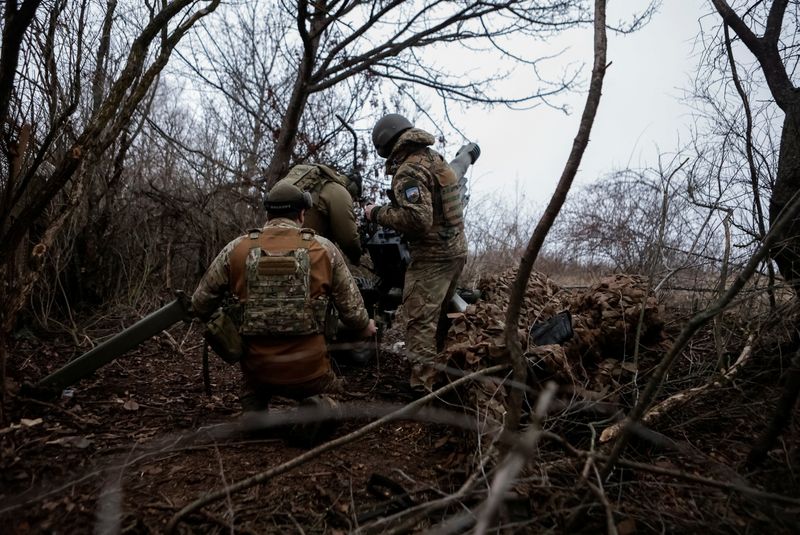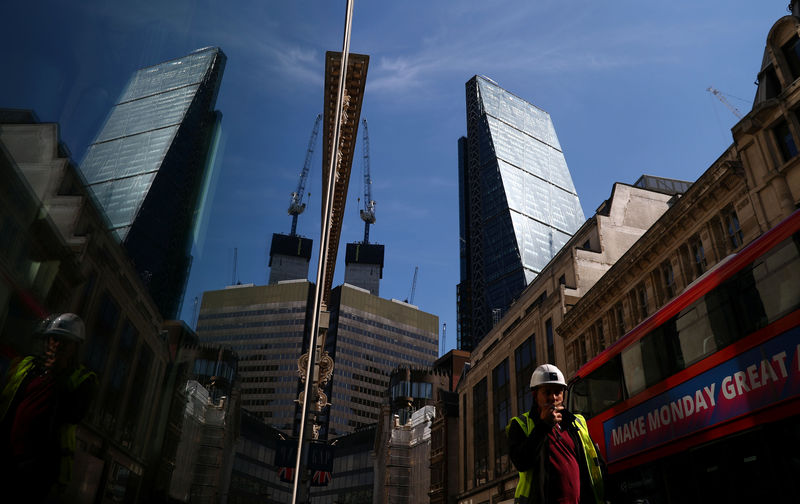
By Gram Slattery
WASHINGTON (Reuters) – President-elect Donald Trump’s advisers agreed today that the war in Ukraine will take months or longer to resolve, a sharp reality check on his biggest foreign policy promise – to make a peace deal on his first day in the White House.
Two Trump aides, who have discussed the war in Ukraine with the president-elect, told Reuters they were looking at a timeline of months to resolve the conflict, describing Day One’s promises as a a combination of campaign bluster and a lack of appreciation for the intractability of the conflict and the time it would take to build a new administration.
Those assessments are consistent with comments by Trump’s incoming Russian-Ukraine envoy, retired Lieutenant-General Keith Kellogg (NYSE:), who said in an interview with Fox News last week that he would like to have a “solution” to the war within 100 days. , more than the original timeline of the president-elect.
Even Kellogg’s extended deadline is “way, way too optimistic,” said John Herbst, a former US ambassador to Ukraine who is now at the Atlantic Council think tank in Washington.
“For this to work, Trump has to convince (Russian President Vladimir) Putin that there is a downside for intransigence,” Herbst said.
Since his election victory on November 5, Trump has declared several times that there will be an agreement between Ukraine and Russia on his first day in office, if not before.
In late October, however, he made a subtle change in his rhetoric, and began saying that he could resolve the war “quickly.”
Since the election, Trump has scaled back his rhetoric, often saying he will “resolve” the conflict, without giving a timeline. And the president-elect said ending the war in Ukraine would be more difficult than achieving a ceasefire in Gaza.
“I think, frankly, it’s going to be more difficult than the Russia-Ukraine situation,” Trump said when asked about Gaza at a press conference in December. “I find that harder.”
Russia has also sent mixed signals about a possible peace deal, welcoming direct talks with Trump, while rejecting some ideas his advisers have put forward as unlikely.
The Kremlin declined to comment on the Trump team’s updated timeline. Representatives for the incoming Trump administration and the Ukrainian embassy in Washington did not respond to requests for comment.
‘NO INTEREST’
Russia has made significant military gains in recent months. While those gains come at a huge cost in terms of men and material, many analysts argue that Putin has an incentive to slowly walk a deal as he tries to control more territory of Ukraine.
Herbst pointed to comments earlier this month by Russia’s UN ambassador, Vasily Nebenzya, who said the peace plans put forth by Trump’s advisers were “disinterested.”
While the exact contours of a Trump peace plan are still being explored, Trump’s advisers generally support taking the possibility of NATO membership for Ukraine off the table, at least for the foreseeable future, and freezing it. on the current battle lines.
Most of Trump’s high-ranking advisers also support giving Ukraine a material security guarantee, such as the creation of a demilitarized zone patrolled by European troops.
Currently, the Trump team’s attempts to end the war continue to come in fits and starts, outlining the degree to which campaign promises can turn into reality in complex diplomatic negotiations.
Kellogg, Trump’s Ukraine envoy, postponed a planned visit to Kyiv ahead of the inauguration, seen as part of a fact-finding mission to give officials the start of a plan of peace, Reuters reported last week.
The Ukrainian foreign ministry cited US concerns about the violation of the Logan Act, which limits the ability of private citizens to negotiate with foreign governments.

“I don’t think I should meet (Putin) until after the 20th, which I hate because every day people — many, many young people are being killed,” Trump said at a press conference in last week
Meanwhile, incoming Trump administration officials at the State Department, National Security Council and other agencies are still feeling out who has input and jurisdiction over various geopolitical issues, one of Trump’s foreign policy advisers said. told Reuters.







